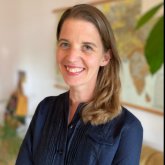Assistant Professor in Spatial modelling for climate-smart food systems
The University of Twente wants to be an organisation that effectively deploys diversity, talents, and capabilities in the labour market for now and in the future. In the framework of our diversity and inclusiveness policy, we strongly stimulate people with a (work) disability to apply.
The University of Twente is committed to providing a working environment where everyone is valued, respected, and supported to progress. Our priority is to ensure that no one is disadvantaged based on their ethnicity, gender, culture, disability, LGBTQ+ identities, family and caring responsibilities, age, or religion. We encourage everyone who shares these values to apply.
Climate-smart food systems are a crucial part of the solution to addressing climate change. Knowledge of where, when, and how to improve the performance, sustainability, and resilience of food systems in a changing climate is a growing area of interest for research, policy, and financial investment. This requires spatial and temporal modelling of the impact of a changing climate on food systems and vice versa.
Food system models represent the different activities within food systems (such as production, processing, distribution, and consumption) and incorporate multiple drivers and feedback loops with social/human systems and environmental systems. Many of these activities, drivers, and feedback loops involve spatial processes; there is considerable potential for further integrating Earth observation data and other spatial data sources into such models.
Modelling multiscale interactions with ecological processes and ecosystem services, as well as modelling the outcomes at multiple levels, provides insight into plausible transitions towards circular and climate-smart food systems. Developing this modelling toolkit is a scientific opportunity with high societal value. To address this, we are looking for an Assistant Professor on “Spatial modelling for climate-smart food systems.”
You will contribute to ITC’s innovative geospatial research and education for societal impact by researching the use of Earth observation and other spatial data for modelling climate-smart food systems, developing, coordinating, and teaching courses on modelling in our education programmes, and co-supervising PhD candidates and MSc students. You will work with our e-learning specialists to develop online educational materials.
You will also publish your research in scientific journals, conferences, and open data/code platforms, collaborate with ITC colleagues and your broader network to demonstrate the scientific and societal impact of (y)our work, and join or lead international projects, providing you with exciting opportunities to use and extend your network. Besides that, you will also communicate about your research and education to a broad audience and extend our network.
You will actively contribute to the network and ambitions of the Netherlands sector of Earth and Environmental Sciences.
Information and application
For more information, you can contact Prof Andy Nelson (e-mail: a.nelson@utwente.nl). You are also invited to visit our homepage
Please submit your application before 15 September 2025, including:
- A motivation letter clearly addressing the main points in the position profile and how you fit the profile.
- A full Curriculum Vitae.
- The names and contact details of two references.
Applications that demonstrate authenticity, vision, and a sincere interest in the position will be favoured over those that include generic statements generated by AI-enabled text formulation.
For questions about working and living in the Netherlands, please consult the official website of the Netherlands Government or the website of the Expat Centre East Netherlands.
Screening is part of the selection procedure.
First round (online) interviews will be held in the second half of September; second round (onsite) interviews – which will include a guest lecture – will be held in early October. Candidates will be informed in advance of any changes to this timeline.
About the department
The Department of Natural Resources uses Earth observation data and spatial information in combination with systems analysis to map, monitor, model, and handle natural resources for their sustainable use, development, and restoration under global change. Read more about our department
One of our themes is Food Security and the sustainable use of natural resources to provide sufficient, affordable, and nutritious food whilst reducing the environmental impact of agriculture. ITC contributes to local and global food security initiatives by combining the latest geospatial technologies, including Earth observation, with innovative field, lab, and computational methods to better understand the “where,” “when,” and “how” of agricultural production and its impact on the environment.
About the organisation
The Faculty of Geo-Information Science and Earth Observation (ITC) provides international postgraduate education, research and project services in the field of geo-information science and earth observation. Our mission is capacity development, where we apply, share and facilitate the effective use of geo-information and earth observation knowledge and tools for tackling global wicked problems. Our purpose is to enable our many partners around the world to track and trace the impact – and the shifting causes and frontiers – of today’s global challenges. Our vision is of a world in which researchers, educators, and students collaborate across disciplinary and geographic divides with governmental and non-governmental organisations, institutes, businesses, and local populations to surmount today’s complex global challenges and to contribute to sustainable, fair, and digital societies.





